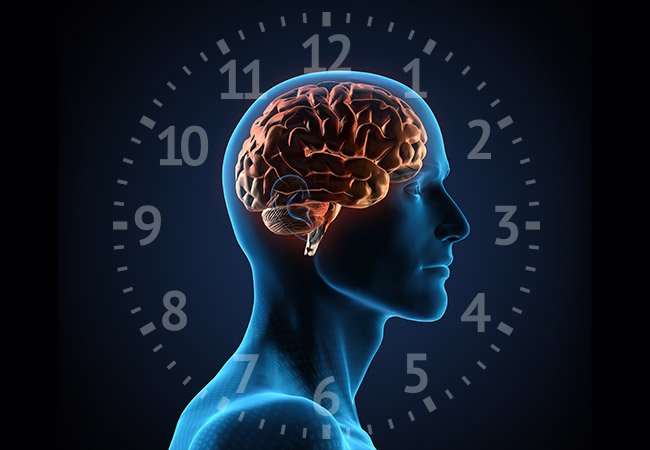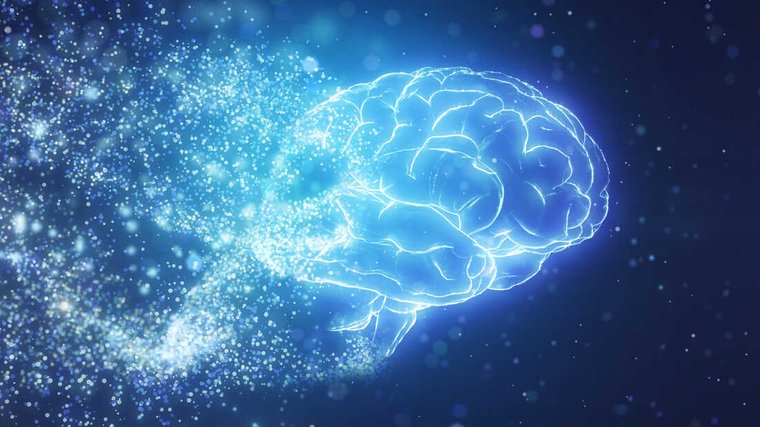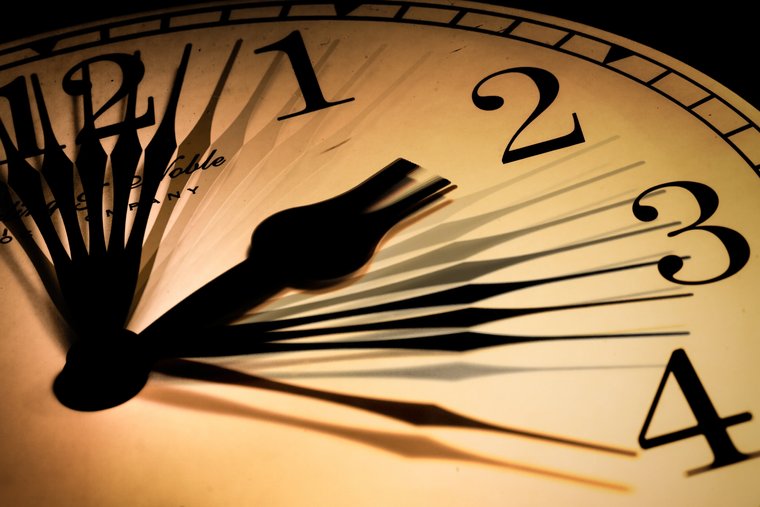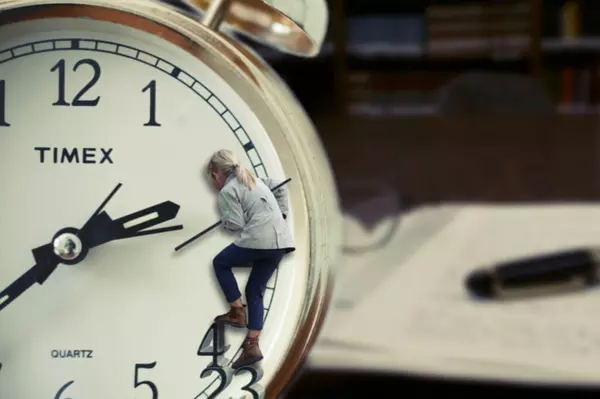You might be surprised to learn that there is a scientific reason why time feels like it’s going faster when you’re having fun, and slower when you’re bored, and that time feels faster as you get older than it did when you were younger. Hours can pass while we’re immersed in an engaging task or hobby. Meanwhile, a single minute can feel like an eternity when we’re bored or anxious. It’s such a common experience that a lot of research has been done to explain this phenomenon.
Scientists have studied the way we experience time, and have found that while the basic measure of time remains constant and precise, our perception of it is subject to subjective factors specific to each individual. The brain does not keep time like a regular clock.
But what causes this strange perception of time? And what makes time seem to speed up or slow down? Here are the most important scientific reasons for this phenomenon
Reasons why time feels like it flies when we’re having fun and slows down when we’re bored
When we are having fun, time seems to pass quickly, while when we are bored, it seems to move very slowly. Here are some reasons why we believe this:
*internal brain clock
*Dopamine
*Attention and memory
*Motivation to reach the goal
*Age
1. The brain’s internal clock

Neuroscientists have found that our brains have an adaptable internal clock that can expand or contract time based on our experiences and awareness of things around us. The brain’s internal clock plays a role in how we perceive time to be passing quickly or slowly. This perception is influenced by a variety of factors, including our level of engagement, attention, and arousal.
When we are engaged in pleasurable or stimulating activities, our attention is often completely absorbed, and our brains are actively processing information. This increased cognitive activity can lead to the feeling that time is passing quickly because our focus is directed outward, and we may not be aware of the passage of time.
Conversely, when we’re bored or engaged in mundane tasks that require little mental effort or stimulation, our brains may perceive time as passing more slowly. In these situations, our attention may be distracted, and we become more aware of the passage of time because there are fewer external stimuli to occupy our minds.
Based on this “brain clock” model, our brains produce pulses at certain intervals, which represent the passage of time. When we are excited or afraid, our brains produce more pulses at a given interval, making time seem to slow down. When we are relaxed or distracted, our brains produce fewer pulses, making time seem to speed up.
2. Dopamine

Dopamine is a neurotransmitter associated with pleasure, reward, and motivation. It’s released when we experience rewarding or pleasurable experiences. According to a study published by the National Library of Medicine, dopamine activity in the brain can affect our subjective experience of time. When dopamine levels are high, such as during experiences of pleasure or excitement, time may seem to pass more quickly. This phenomenon may occur because dopamine enhances our focus and attention on rewarding stimuli, causing us to become more absorbed in the present moment and less aware of the passage of time.
Conversely, disturbances in dopamine function or low dopamine levels can lead to adverse changes in time perception. For example, conditions such as Parkinson’s disease, which is characterized by dopamine depletion, can be associated with changes in time perception, including the feeling that time is passing more slowly.
Additionally, medications that affect dopamine activity, such as stimulants or medications used to treat attention deficit hyperactivity disorder (ADHD), can also affect time perception. This is because these substances alter dopamine levels in the brain, which can affect how individuals perceive the passage of time.
Neuroscientists have found that there is a group of neurons responsible for secreting dopamine, and when we are having a good time, these cells are more active and secrete a lot of dopamine, so you feel that time passes quickly. The opposite is true when you are not having fun, these cells do not secrete a large amount of dopamine, and therefore time seems to slow down.
3. Attention and memory

One of the main factors in our perception of time is our level of attention and memory. When we are engaged in a task or enjoying ourselves, we pay less attention to the passage of time, which makes time seem to pass faster. On the other hand, when we are bored or waiting, we are acutely aware of every second, which makes time seem to creep by very slowly.
Our memory also plays a crucial role in this equation. When we’re having a good time, our brains don’t typically store detailed memories, so the time seems to have passed quickly when we look back. Conversely, during periods of boredom, our brains tend to store more information, creating the impression that the period lasted longer when we recall it later.
4. Motivation to achieve the goal

Having motivation or intrinsic drive can actually affect our perception of the passage of time. When we are highly motivated and focused on achieving a specific goal, we often become deeply engaged in the tasks associated with that goal. As a result, our attention is drawn to the present moment, and we may lose track of time because we are so immersed in the activity.
A 2012 study published in the journal Psychological Science of the Association for Psychological Science found that when people pursue goals that are personally meaningful or challenging, they are more likely to experience a state known as “flow.” Flow is characterized by intense focus, a sense of control, and a distorted perception of time, where people may feel like time is passing quickly.
Additionally, the anticipation of achieving a desired outcome can also affect our perception of time. Simply put, when we are motivated by the prospect of achieving a goal, we may feel a sense of excitement or anticipation, which can make time seem to pass more quickly as we anxiously await the outcome.
In addition, when people experience positive emotions or states, they feel that time passes more quickly than when they experience negative emotions. However, research has shown evidence that not all positive states are created equal. In other words, when time moves more quickly, it is a result of our personal desire to approach or pursue something, rather than a general effect of increased attention or physiological arousal.
5. Age

Time also seems to speed up as you get older. When you’re a child, everything is new, so your brain lays down dense networks to remember those events and experiences, making time seem to slow down. As an adult, your experiences become repetitive and don’t trigger or form new memories, making time seem to speed up.
One reason for this is what psychologists call proportionality theory, which suggests that as we age, each unit of time (say, a year) makes up a smaller proportion of our total lifespan. For example, a year might seem relatively longer to a 10-year-old than to a 50-year-old because it represents a larger portion of the younger person’s life. This can contribute to the feeling that time passes more quickly as we get older.
In addition, there is some scientific evidence that some physiological changes that occur in the brain as we age affect our perception of time. For example, cognitive factors such as memory and processing speed can affect time perception. As cognitive abilities change with age, so does our perception of time.
Is the sense of time limited to humans only?

The experience of time flexibility is not limited to humans. Research shows that animals also have a flexible perception of time, and have their own personal experience of time, which is influenced by factors such as their physiology, cognitive abilities, and environmental factors. For example, domesticated animals often anticipate mealtimes and may become restless, vocal, or more agitated when food is delayed. Additionally, wild animals may also exhibit behaviors that indicate they are aware of how long they need to wait and pounce on their prey at the right time.
Animals often have daily rhythms of activity and rest, with nocturnal animals being active at night and resting during the day, and diurnal animals being active during the day and resting at night. These patterns suggest an internal biological clock that helps regulate sleep-wake cycles just like humans.
Furthermore, many animals exhibit seasonal behaviors, such as mating, migration, and hibernation, that are timed to changes in the environment. For example, birds migrate to warmer climates in the winter and return in the spring before there is a real change in the weather. That is, the birds begin their journey because of their sense of time and perception of the approach of winter, rather than because an actual climate change is driving their migration. These behaviors indicate an ability to perceive changes in time over longer periods.

In conclusion, the feeling that time passes quickly during pleasurable moments and slows down during boring activities is a complex interplay of psychological, neurological, and environmental factors. When we engage in stimulating or pleasurable experiences, our attention is fully consumed, and our brains are flooded with neurotransmitters like dopamine, which enhance our focus and distort our perception of time.
Conversely, during periods of boredom or monotony, our brains may lack sufficient stimulation, causing us to become more aware of the passage of time and feel as if it is passing more slowly. In addition, individual differences and cognitive processes in each person’s brain further shape our subjective experience of time.
Understanding the mechanisms behind this relative view of time not only sheds light on fundamental aspects of human cognition, but also offers insight into how we can better manage our time. Understanding how our brains perceive time is the first step to harnessing it and getting the most out of life.














Leave a comment